We are heading into the wintery weather here in Texas. Beautiful changes in weather. The romantic smell of burning leaves. Football games. Snuggles under the covers when the nights begin to get cold. And, in my case, the real possibility of seasonal depression.
Do you dread the holidays? Does Christmas music make you melancholy? Aside from the commercialization of Thanksgiving and Christmas, the holidays are hard for me for a number of reasons. And during this time of year, I have to be extra careful to plan, strategize, and work with all my might to keep my boat above water and keep my heart buoyant and hopeful. I would love to have Christmas feel like magic again. I would love to lose the dread that comes along with the thrill of the coming weather changes. Storms are so romantic when you’re in a healthy relationship. And they can be so sad and scary when you are alone and longing for someone to share your life with.
The Three Types of Depression I Live With
- Experiential Depression
- Chemical Depression
- Seasonal Depression
They are interrelated, but we need to separate them out and examine the different triggers and defenses against them. Let’s get semi-scientific about this process.
 Experiential Depression
Experiential Depression
Sometimes, life is hard. Last summer when my brother died of cancer, life was giving me some difficult experiences and I was experiencing some difficult emotions. At the exact same time, my girlfriend of six months decided to bolt due to her self-expressed anxiety about “being in a relationship.” In less than two days I lost two very important people in my life. NOT TO BE DEPRESSED would’ve been alarming. (see: I Cannot Fix Your Broken Wings, I’m Still Repairing Mine)
When really hard things happen, it is okay to acknowledge them and slow your life down to feel them. Some people try and hurdle over the hurt life throws at them, but the pain will eventually catch them as well. Don’t deny your feelings. Don’t try and escape them. You don’t have to fall apart and sink into a depression, but taking a break, pausing, and being sad is a healthy response to major life setbacks.
The problem for me was in how I was thinking about my low period. (I’ve written about my new awareness of my internal shame related to being sad, here: Total System Failure: Rebooting My Life, Again) The short version is this: I am happiest when I’m close to mania. When I’m in a low state, it’s not bad, except for how I treat myself. I am very harsh to myself about not being able to maintain 110% output all the time. My own self-criticism was responsible for a lot of my distress during last year’s holiday season.
Here is the message about experiential depression: When life throws you a hardball, take the strike and give yourself a break. Don’t make things worse by degrading yourself for feeling depressed.
 Chemical Depression
Chemical Depression
A lot of times when I’m hitting an experiential depression I also begin to slide down the chemical side of depression. As my body reacts to the sadness and suppression of sadness I begin to manufacture chemicals in a dysfunctional way. Through all my experiences of depression, I had learned how to drop into hopelessness pretty easily. My body begins to prepare and insulate itself from this catastrophic fall by mixing in anxiety chemicals and chemicals to slow me down, to prepare me for being depressed even before I’m depressed.
My body has learned how to go into depression.
I am learning to listen to my body more. And when the depression response begins to happen I look to the other aspects of my life and make sure I have everything I can control as balanced as possible.
The Big 5 Health Factors
- Food
- Sleep
- Exercise
- Play
- Meetings/Friends
I cannot control my body’s response, but I can adjust to what’s happening in my body and learn to mitigate the damage I might cause by trying to self-medicate or avoid the emerging sadness.
When I begin to feel the pangs of depression (chemical or existential) I reset my health routine with vigor. I can control the food, sleep, and community aspects of my life. I can DO what needs to be done, while still responding and listening to what’s happening in my physical body.
 Seasonal Depression
Seasonal Depression
Seasonal depression seems to be a hybrid for me. It’s experiential because I’m being triggered by the changes of the season, the shortening of the days, the impending doom of Christmases-past. And it can become chemical if I don’t check the slide with my health factor intervention.
Today is September 9th. The changes are underway. My life path appears to be clear and quite optimistic. And yet… I have the caution of my past experiences still nagging me with tiny warnings. It’s not quite a ghost behind me tapping me on the shoulder. But it’s more like the echoes of last year’s failure and drop that happened in November of last year.
Here’s the good news: I am responsible for my own happiness. My choices, if I edge in a healthy direction, can determine my resilience. And my pattern of acting out and isolating when I’m feeling pain can become an indicator for additional (potentially pharmaceutical) interventions. It’s not that I’m feeling scared about the upcoming season, but I am aware of my past stumbles. I’d like to be able to see some of the hurdles as they are approaching.
I want to run hurdles in the bright light of the morning. I don’t want to run into the hurdles as I rush towards them at midnight on a moonless night on an unlit track
Keep Your Awareness About You
Listen to your body. If you are feeling sad, check in with someone else. If you notice your overall vibe heading towards the black hole, take all necessary evasive actions. I am not going into the black hole this year. And, in fact, last year I THINK I went into a black hole, but I was merely unhappy about not being at 110% productivity.
Let’s stay healthy out there.
Always Love,
John McElhenney – life coach austin texas
Facebook | Instagram | Pinterest | @wholeparent
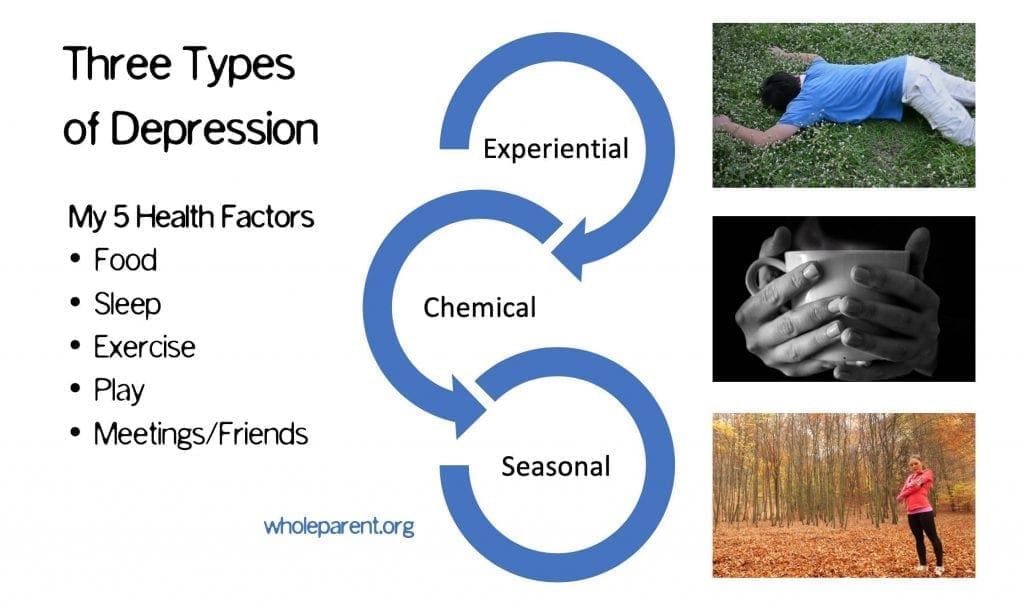
More articles from The Whole Parent:
- Managing Depression In Romantic Relationships: Getting Real w/ Myself
- Divorce, Depression, and My Ex-wife: Humans of Divorce
- As a Single Parent: Love Fiercely, Because This All Ends
- Depression: Yeah, Me and My Broken Leg
- Not Taking the Death Pony Ride into the Darkness
The new book is now available.
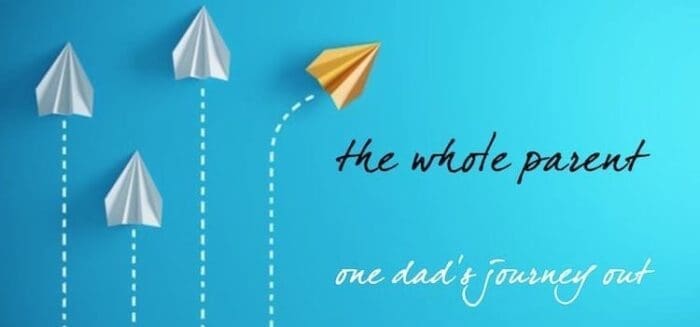
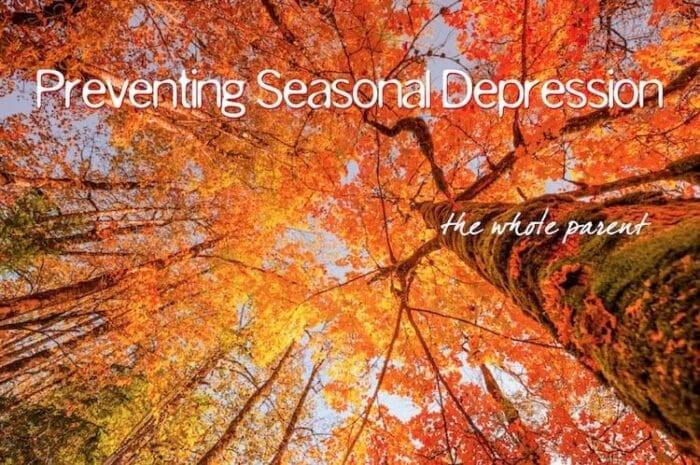
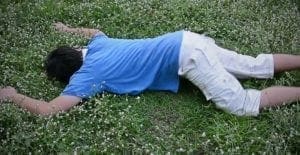 Experiential Depression
Experiential Depression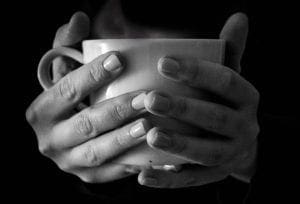 Chemical Depression
Chemical Depression Seasonal Depression
Seasonal Depression
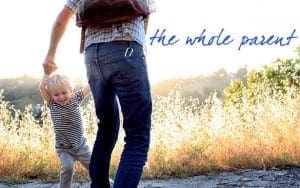


John,
My therapist taught me to spot the physical signs of depression. They are different for all of us. For me, it is a sensation behind my eyes and I cannot ignore it. I immediately get to exercising and if I catch it early I can break the cycle.
Got stuff.
Thank you Marc.